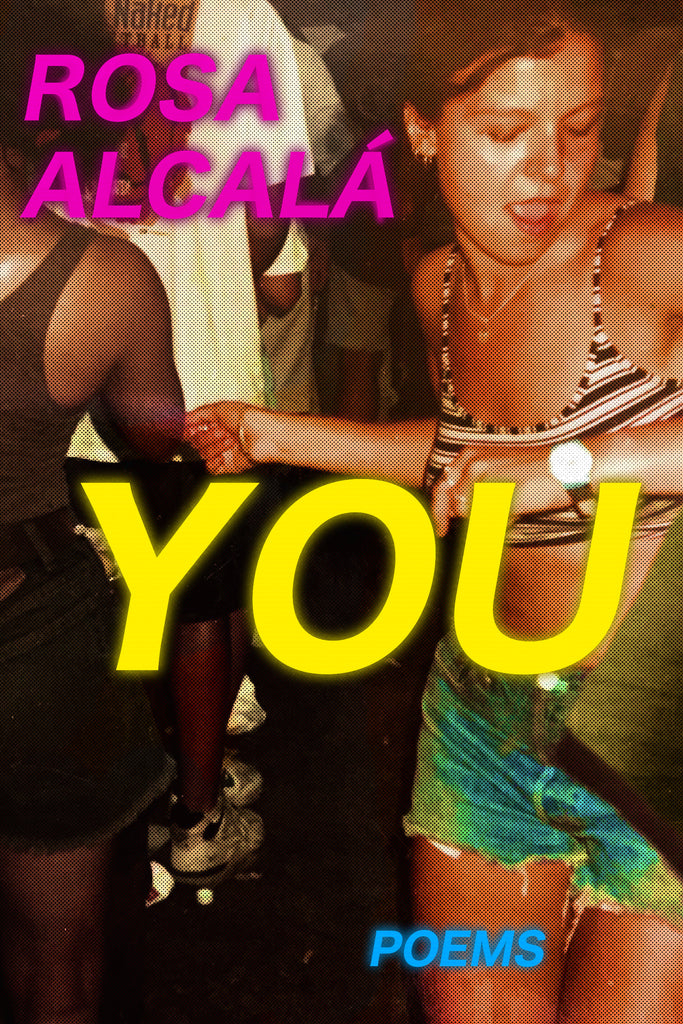Poems by Rosa Alcalá
April 9, 2024 • 6 x 9 • 88 Pages • 9781566897013
From the author of MyOTHER TONGUE comes a new collection of prose poetry exploring the intergenerational inheritance of gendered violence.
Rosa Alcalá choreographs language to understand the body as it “gathers itself over time to become whole,” recovering the speaker’s intuition while unraveling memory to pinpoint the aches, anxieties, and lessons of a woman’s survival. Ruminating on daughterhood, mothering, and the body's cumulative wisdom, YOU traces a jagged line through fears and joys both past and present.
About the Author
Rosa Alcalá has published three previous books of poetry, most recently MyOTHER TONGUE. She has been awarded fellowships and grants from the Foundation for Contemporary Arts, Harvard’s Woodberry Poetry Room, Yaddo, MacDowell, Fundación Valparaíso, and the National Endowment for the Arts. Her translation and editorial work include New & Selected Poems of Cecilia Vicuña and Spit Temple: The Selected Performances of Cecilia Vicuña, runner-up for the 2012 PEN Translation Award. Her poems and translations have appeared in Harper’s, the Nation, Poetry, and Best American Poetry, among other publications. She is the De Wetter Endowed Chair in Poetry at the University of Texas at El Paso’s Bilingual MFA in Creative Writing Program.
Praise for YOU
"Do we have a way of explaining the imaginative tangle of what your life has been, but what you wished it could have been, and what you still wish it might become? Rosa Alcalá’s YOU is a book of spells that fearlessly confronts this question. Her unforgettable prose poems are feminist, feminine epiphanies, recklessly abundant in erotic charge and bitter wisdom.” —Katie Peterson
“Like a pendulum prognosticating some unknown future as it swings forward, only to swing back to rewrite the possible, Rosa Alcalá’s sumptuous YOU interrogates the horizons where definitive shape makes claim, and, instead, founds a compassion that blurs legislated boundary (of body/of mind/of self/of other). In prose as gorgeously devastating as it is crushingly stunning, YOU begs answer: when we are so many beautiful collisions, so many fleshed events, where does one body end and the other begin?” —J. Michael Martinez
“Speaking to herself through the second person ‘you,’ Rosa Alcalá opens a transom through time and space. Reaching all the way back to the ‘eyes that didn’t know what I was witnessing at five,’ the poet gathers vision and selves, memory and prophetic warning. Her attempt to ‘love the world’ helps us to see ourselves as imperfect as we started but indivisible as we might become.” —Farid Matuk
Praise for MyOTHER TONGUE
Best of 2017: Literary Hub & Entropy
Small Press Distribution Bestseller
“Here are poems that reckon with the histories of family, generations, language, and love: how our tongues are mothered or not, how we are given to and abandoned. Alcalá writes, 'What good is it to erect/ of absence/ a word?' Tough and gorgeous, smart and touching, these poems are offerings that tie, untie, unite, entice.” —Hoa Nguyen
“[Alcalá] uses empty spaces, hesitations, and semantic difficulties to address mothers and daughters, herself as mother and herself as daughter, and the messy emotions and miscommunications that move between languages (in her case, English and Spanish), as well as between and within female bodies, in breastfeeding, menstruation, giving birth. Alcalá’s short, wry lines, self-interruptions, and open spaces remind us how little precedent there is for honest writing on these topics, compared with the epic traditions of fathers and sons.” —Stephanie Burt, The New York Times
“Rosa Alcalá's new poemario MyOTHER TONGUE begins in the archives of what has yet to be written. She writes with precision and dynamism from the borders between death (of a mother) and birth (of a daughter). What a body produces, and what produces a body: labor, trauma, memory, sacrifice, pain, danger, and language formed both on the tongue and in the culture and the spaces between what can be said and what is missing, the linguistic and existential problem of not having the right words. The darknesses in Alcalá's work emerge from what happens when we don't see ourselves in the languages that both form and destroy us as we labor in this 'dream called money.' Alcalá is a {un}documentarian of the highest order, a {un}documentarian of what history and memory try to erase. Her poems are urgent, demanding, and haunting” —Daniel Borzutzky

